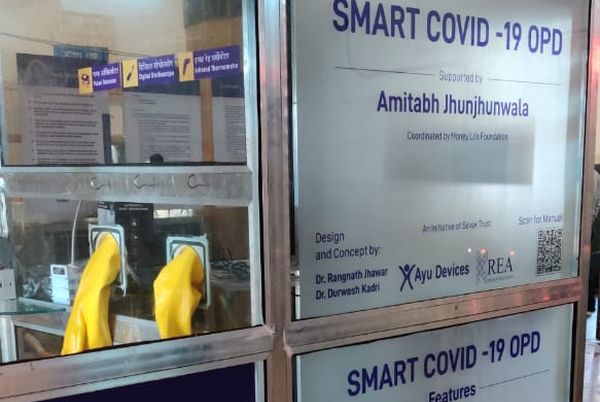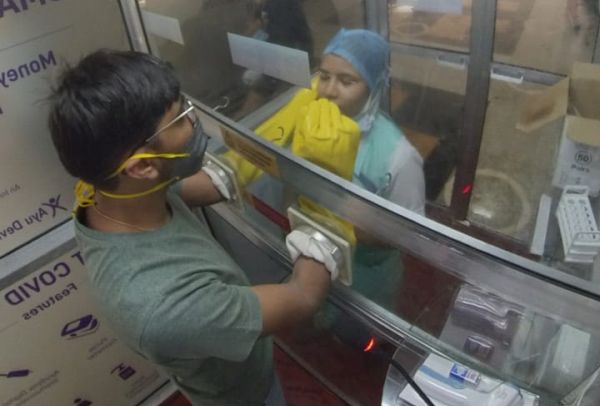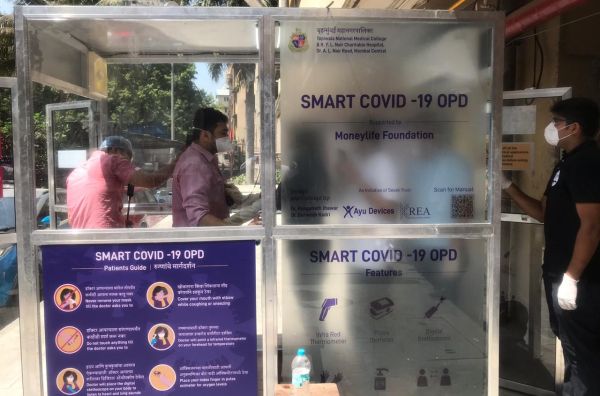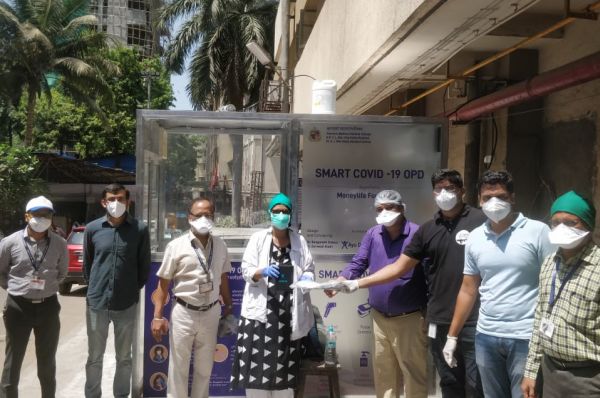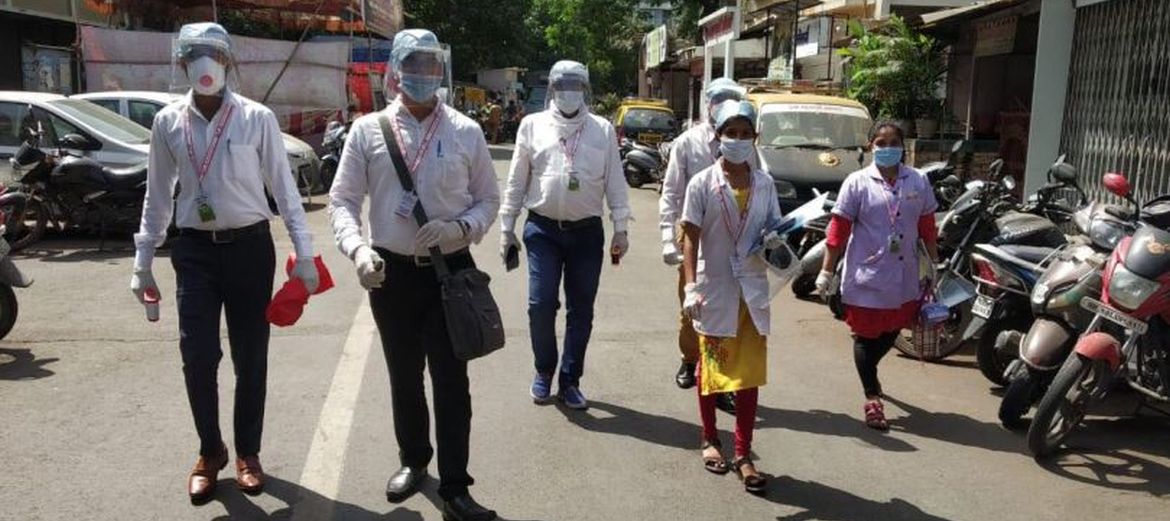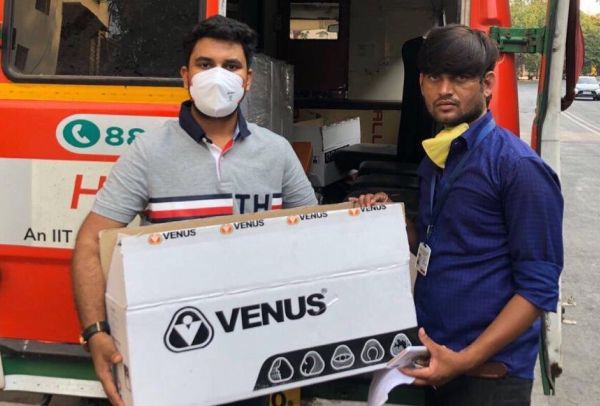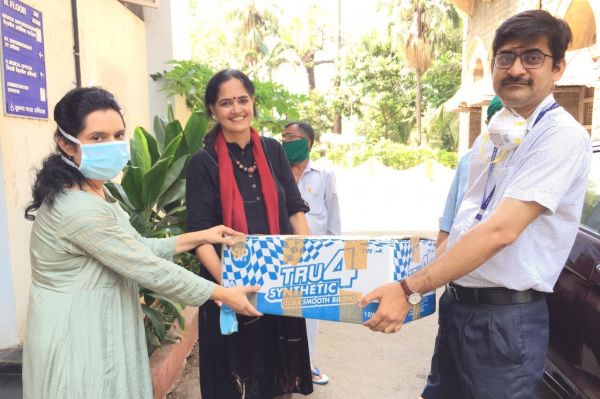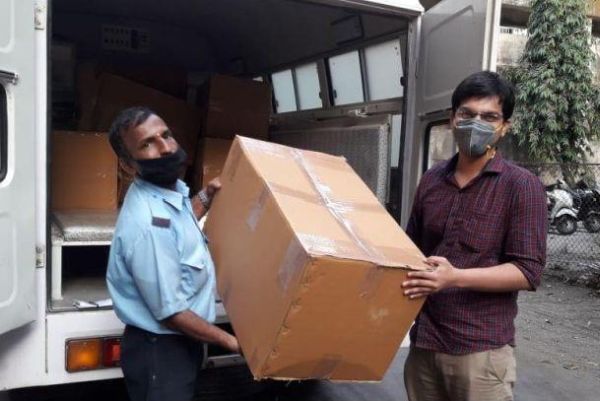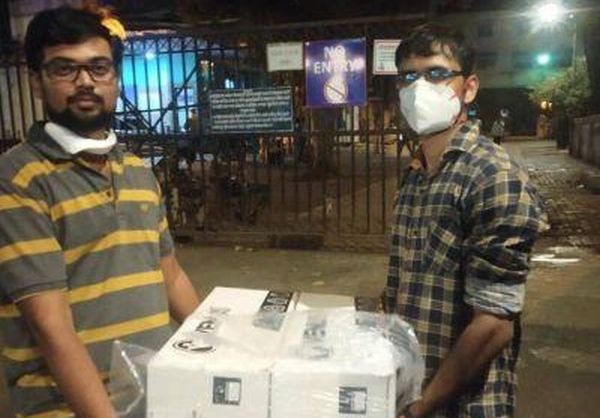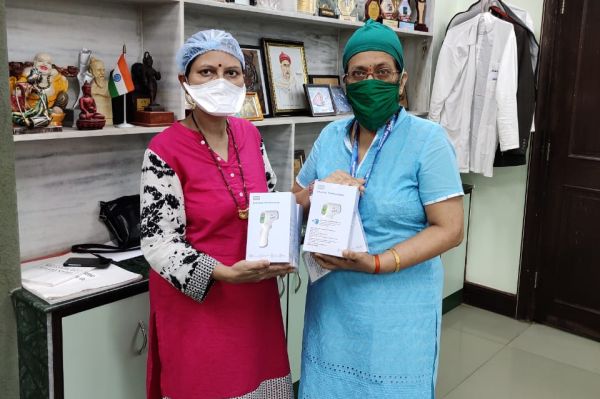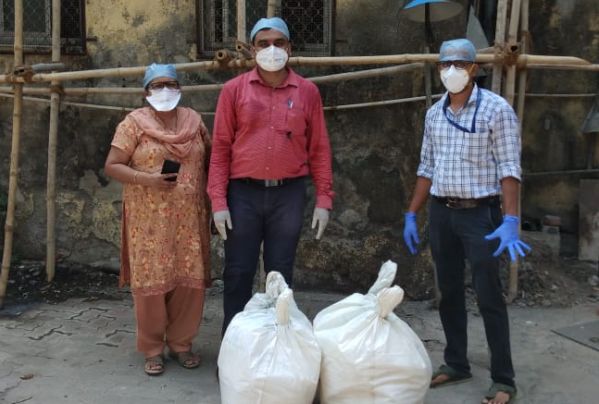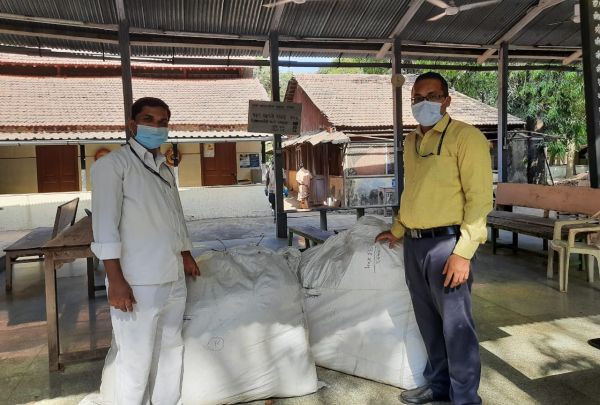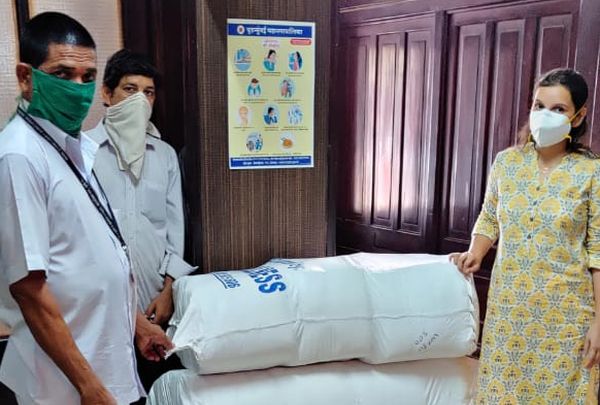COVID-19: Smart OPDs To Help Keep Our Doctors Safe
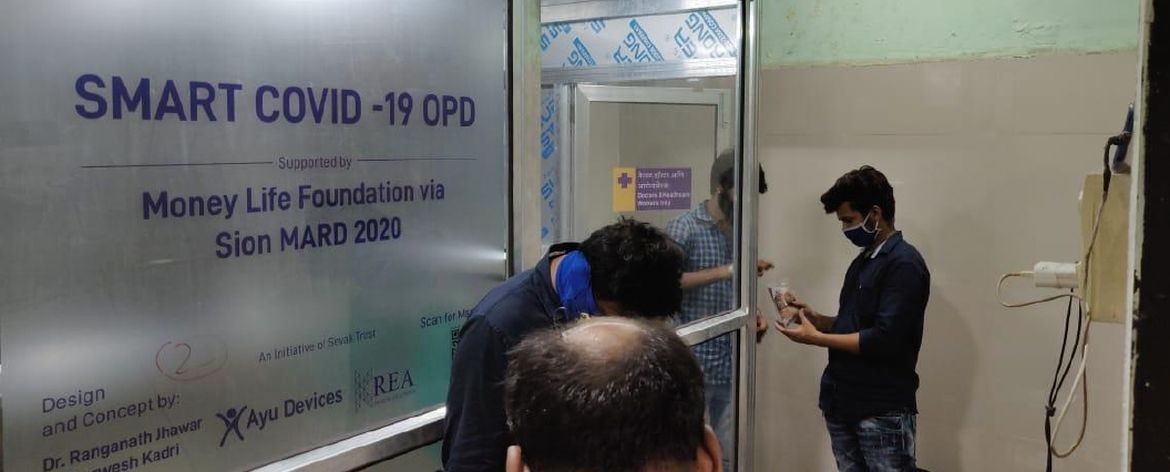
At a time when COVID-19 positive cases are rapidly on the rise, medical professionals, our first line of defence in this pandemic, are not only more susceptible, but are testing positive in large numbers.
Moneylife Foundation’s work to provide protective gear to hospitals, as part of its COVID relief work has given us a ring side view of the urgent need to reduce exposure of doctors and medical staff, especially to walk-in patients with signs of COVID exposure. Read this article on the ground reality of what healthcare workers face.
After several doctors tested positive in a single day at Sion Hospital, Dr Avinash Saknure, of the Maharashtra Association of Resident Doctors (MARD) brought to our attention a ‘Smart COVID 19 OPD’ (out patients department), that allows no-touch screening of patients and sent us the video below.
Thanks to the generous support of a specific donor (who wishes to remain unnamed), the installation was completed on Monday, 20th April.
This is based on 'No-touch technique' and encompasses special facilities like digital stethoscope, pulse oximetry, infra-red thermometer,etc.
The OPD has been designed in the form of two partitioned cubicles and is useful to screen routine patients without physical contact while also taking swabs for suspected cases of COVID-19. The cubicles have also been fitted with a mic and speaker similar to an arrangement in multiplexes, which allows doctors to interact with patients for a better understanding of their medical history.
In this system, the doctor can examine the patient from one side of cubicle with the help of gloves with the doctor's side being isolated from the patient's side.This unique setup also allows the doctor to sanitise the patient's chamber with the help a simple switch.
This protection has traditionally been in terms of personal protective equipment (PPEs), masks, gloves and face shields and now perhaps more innovatively through a ‘Smart OPD’ as designed by AYU Devices.
The idea for this OPD, says sources came from Dr Ranganath and it has been designed to his specifictions with the assistance of Krea Design Solutions.
“This OPD setup is not for all routine OPDs; this is exclusively for screening and fever OPDswhere the risk of getting infected is much more than any other OPD, where you need to do other physical examinations,” said a doctor while explaining the use and limitations of the smart OPD.
That doctors cannot physically examine patients remains a negative factor; but at this time, the greater need is to protect front line medical workers from infection, at least from obvious cases where symptoms suggest a possible COVID infection.
Another big advantage is that the Smart COVID OPD, assembled as a leak proof barrier, while allowing thorough examination of the respiratory system will reduce the need for recurrent protective gear such as Personal Protection Equipment (PPEs), which are in short supply and tends to be expensive precisely because it has to be discarded after use.
There are requests from many top public hospitals to have such OPDs.
If you would like to help with the relief efforts of Moneylife Foundation, you can donate here


